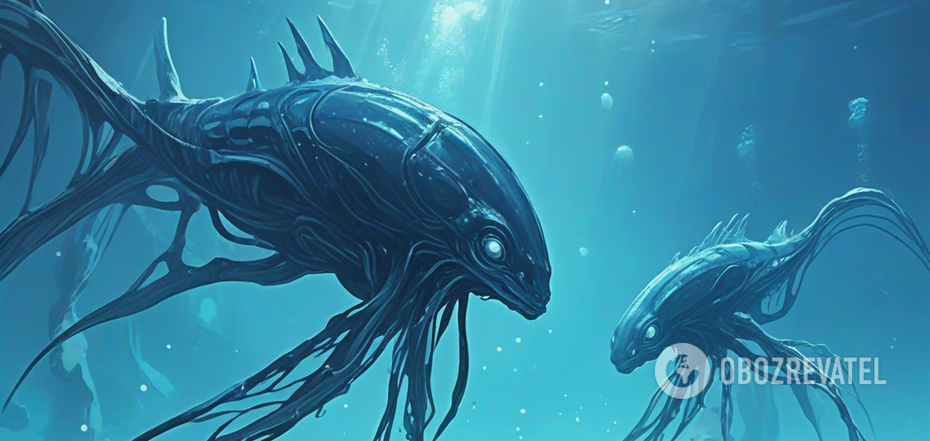News
Aliens could be stuck in a trap: a new theory of scientists
Alien civilizations that live in water or other liquids on their home planets could be trapped and simply physically unable to leave their planet. This factor has a significant impact on the likelihood that humanity will ever encounter representatives of alien life.
This is stated in a study by Elio Quiroga, a professor at the University of Atlantico Medio in Spain. According to Phys, his work was published in the Journal of the British Interplanetary Society.
In 1961, astrophysicist Frank Drake derived an equation that is now known as the Drake equation. It explores the question of why humanity has not yet met representatives of extraterrestrial civilizations.
In his work, the astrophysicist took into account a number of factors, including the number of stars with planets in their orbits, the rate of star formation, and the proportion of planets that can develop and sustain life.
But, as Kiroga suggested, the scientist may have miscalculated somewhat, as he did not take into account the possibility of the existence of alien civilizations living in water or other liquids, as well as civilizations on super-Earths that could be trapped on their home planets due to their own "physical limitations."
According to the scientist, civilizations that would find themselves in this position simply cannot leave their planets to go out into space and possibly meet humans.
Quiroga suggests that the Drake equation should be extended to take into account two additional possibilities.
The first is that we need to take into account the reality of life on super-Earths. This is the name given to exoplanets that are larger than our Earth, but not larger than Uranus or Neptune, which are 14.5 and 17 times larger than human homes.
The fact is that the gravitational force on such super-Earths would be much more powerful, and therefore the civilizations that live there would need much higher speeds to leave their planet.
Moreover, if the gravitational force on a super-Earth is very high, its inhabitants would have no chance at all of escaping into outer space. The scientist notes that none of the materials known to mankind would be able to withstand the pressure exerted on it during takeoff, no matter how much fuel was used.
In addition, as Quiroga notes, there may be "aquarium worlds" where civilizations were formed in water. Since their communication system would be different from that of humans and they would probably be able to communicate "telepathically" over great distances, they simply would not have the impetus to find a way to physically travel vast distances.
As the professor notes, such "non-communicative" civilizations are not taken into account in the Drake equation at all, although they should be.
Subscribe to the OBOZ.UA channels in Telegram and Viber to keep up with the latest events.



























